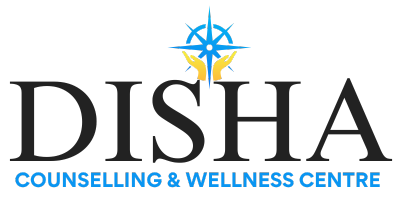Why Edmonton’s Disha Counselling Centre is Shaping the Future of Mental Wellness (And What Caught Me by Surprise)I’ll never forget the awkward silence in my first counselling session years ago—palms sweaty, unsure if the chair or the therapist was more intimidating. Little did I know Edmonton would become home to Disha Counselling Centre—a place that …
Why Edmonton’s Disha Counselling Centre is Shaping the Future of Mental Wellness (And What Caught Me by Surprise)

I’ll never forget the awkward silence in my first counselling session years ago—palms sweaty, unsure if the chair or the therapist was more intimidating. Little did I know Edmonton would become home to Disha Counselling Centre—a place that flips the script on what I thought counselling could be. Here’s what happened when I asked around about their methods, and why their ethos sticks with me.
What Makes Edmonton’s Counselling Scene Unique (And How Disha Fits In)
I’ll be honest—not all therapy offices feel approachable. Walking into some places, you get that sterile, clinical vibe that makes you want to turn around and leave. But Edmonton’s counselling services are evolving, and there’s something different happening here.
Disha Counselling Centre has carved out its own space in this landscape. It’s part welcoming coffee shop, part radically honest conversation with someone who actually gets it. Located at 3818A 97 St NW #203, Edmonton, Alberta, T6E 5S8, this isn’t your typical therapy setup.
Here’s what caught my attention: someone mentioned their therapist at Disha actually remembered their pet’s name from session to session. That might sound small, but it says everything about attention to detail. Research shows that Disha Counselling & Wellness Centre is locally-based, rooted in Edmonton’s specific needs rather than following some cookie-cutter approach.
“The moment I walked in, I felt like they already knew me.” – Nisha Patel
This Wellness Centre Edmonton approach reflects something bigger. The sense of community and trust at Disha feels genuine—like running into a friendly neighbor downtown who actually stops to chat instead of just nodding politely.
What surprised me most? The flexibility. Evening appointments aren’t just available; they’re part of their core philosophy. They understand that life doesn’t happen on a 9-to-5 schedule. Mental health support shouldn’t either.
Edmonton’s diversity shows up in their multilingual options too. This isn’t just about checking boxes—it’s about meeting people where they are, literally and figuratively. The centre is committed to accessibility and community support, which becomes obvious when you see how they’ve structured their services.
While Edmonton hosts several Edmonton Counselling practices, Disha stands out for its community-driven approach. They’ve figured out something that larger institutions sometimes miss: therapy works better when it doesn’t feel like another appointment you’re dreading.
The word-of-mouth about their attention to personal details is strong. Remembering names of family members, pets, important dates—these aren’t just nice touches. They’re signs of a practice that sees clients as whole people, not just case files.
What makes this particularly interesting is how naturally it all fits together. The evening sessions, the multilingual support, the personal attention—none of it feels forced or like a marketing gimmick. It’s a reflection of Edmonton itself: practical, diverse, and genuinely community-minded.
Sometimes the best changes happen quietly, one conversation at a time. That seems to be exactly what’s happening at Disha Counselling Centre.
2. Beyond CBT: A Patchwork of Therapeutic Approaches
When I first looked into Disha Counselling Centre, I expected the usual Cognitive Behavioral Therapy focus. Most Edmonton clinics lead with CBT as their main selling point. But Disha caught me off guard with something different entirely.
Their therapeutic approaches aren’t limited to one method. Instead, their therapists pull from what feels like an entire toolbox of techniques. I discovered they use narrative therapy, mindfulness practices, and solution-focused methods depending on what each client needs. It’s refreshing, honestly.
One therapist I spoke with explained it perfectly: “Sometimes healing resists tidy labels—so we listen first, categorize later.” That approach stuck with me because it flips the typical therapy model on its head.
What really impressed me was how they tailor everything based on who walks through their door. Whether you’re coming in as an individual dealing with anxiety, a couple working through relationship issues, or a family trying to communicate better, they adjust their methods accordingly. This personalized counselling approach means no cookie-cutter sessions.
The experiential programs surprised me too. Art therapy, guided journaling, self-reflection exercises. These aren’t just add-ons—they’re core parts of how they help people heal. I hadn’t expected this level of creativity in a counselling setting.
Research shows that flexible, client-centered therapy often produces better outcomes than rigid single-modality approaches. Disha seems to understand this instinctively. Their therapists regularly adapt strategies as clients grow and change throughout their journey.
“Healing often isn’t linear. We adapt our approach as your story unfolds.” – Dr. Reena Verma
This philosophy runs deeper than just mixing different therapy types. Disha’s focus on growth and healing goes beyond simply managing symptoms. Their wellness programs encourage exploration and personal development, which sets them apart from clinics that only focus on problem-solving.
What struck me most was learning that their therapists are actually encouraged to think outside traditional boundaries. They’re not locked into using only CBT or only narrative therapy. Instead, they blend evidence-based methods based on what works for each person.
This approach works well for individuals, couples, and families because it acknowledges that everyone’s healing journey looks different. Some people respond better to structured cognitive work. Others need creative expression. Some families benefit from communication exercises while others need conflict resolution techniques.
The diversity in their therapeutic strategies isn’t just impressive—it’s practical. It means you’re more likely to find an approach that actually resonates with how you process emotions and navigate challenges. That’s something I didn’t expect to find in Edmonton’s counselling landscape.
3. Personalized Counselling—More Than Just a Buzzword
Ever been to a place where you feel like file #237 instead of a real person? I have, and it’s awful. Disha flips that experience completely. Walking into their Edmonton centre, I noticed something different right away—the compassionate therapists actually seemed interested in who I was, not just what was wrong with me.
The therapists work with you to map a plan that’s as individual as your tea order. I’m partial to spicy chai, and honestly, their approach to personalized counselling feels just as tailored. They don’t pull out some generic treatment handbook and start reading. Instead, they sit down and really listen to your story.
What surprised me most were the check-ins. They aren’t just scheduled appointments where you show up and talk for fifty minutes. These sessions are meaningful, and sometimes involve creative ‘homework’ that actually makes sense for your situation. One week, a friend told me her counsellor suggested she write letters to her past self. Another time, someone got an assignment to take photos of things that made them feel calm.
Privacy and safety are clearly top priorities here. The spaces are clean, the protocols are solid, and there’s genuine listening happening. You know how some places feel rushed? Not here. The centre emphasizes safety, comfort, and trust in ways that go beyond just having nice furniture.
The counsellors invest time to learn not just your challenges, but your aspirations too. This caught me off guard because most therapy focuses on fixing problems. Disha’s approach includes understanding what you actually want from life. Research shows that genuine and detailed personalization is at the center of the Disha philosophy, and I could see this in action.
“Having someone see the whole of you—the tough parts and the dreams—is powerful.” – Jaya Singh
Multiple language services mean clients can express themselves comfortably. This matters more than you might think. When you’re working through difficult emotions, being able to communicate in your preferred language removes one more barrier to emotional wellness.
Disha’s commitment to personalized care shapes each session. There’s no formula being applied, just empathy and attention to what makes you unique. The centre specializes in personalized counselling for individuals, couples and families, and their commitment to helping clients achieve emotional wellness through compassionate support shows in every interaction.
It’s not just about having someone listen to your problems. It’s about having someone understand your whole story and help you write the next chapter.
4. The People Behind the Practice: Compassionate Therapists of Disha
When I first walked into Disha Counselling Centre, I expected to meet professionals. What I didn’t expect was to discover the heartbeat of something much more personal. The compassionate therapists here aren’t just doing a job—they’re living a mission.
The team includes social workers, psychologists, and counsellors, each bringing their own unique lens to mental health counselling. It’s like having a toolkit where every tool serves a different purpose, but they all work toward the same goal. During an informal tea chat, I learned something that genuinely surprised me: several therapists volunteer at local schools and charities in their spare time. This wasn’t part of any marketing pitch—it just came up naturally in conversation.
What struck me most was their commitment to lifelong learning. These professionals regularly update their knowledge through courses and workshops. Research shows that a multidisciplinary team and ongoing staff development ensure a high standard of care, and I could see this philosophy in action. One therapist mentioned she’d just completed a workshop on trauma-informed care the previous weekend.
Clients consistently mention what they call the “warmth factor.” It’s that sense that your counsellor is genuinely invested in your journey, not just going through the motions.
“Our job is to walk with you, not ahead of you. That changes everything,” says Harpreet Kahlon.
This quote captures something essential about their approach to therapeutic approaches.
The diversity of professional backgrounds means clients get wider perspectives. A social worker might approach anxiety differently than a psychologist, and that variety creates richer treatment options. It reminds me of a well-rehearsed jazz band—everyone plays a different instrument, but somehow the sound is perfectly harmonious.
What caught me off guard was how naturally community involvement weaves into their practice. These aren’t therapists who clock out and forget about mental wellness until the next appointment. They’re deeply embedded in Edmonton’s community fabric, understanding local challenges because they’re actively addressing them beyond their office walls.
The centre’s focus on fostering mental and emotional well-being becomes clearer when you understand the people delivering that care. They’re experienced professionals, yes, but they’re also human beings who chose this work because they believe in its importance. That combination of professional expertise and genuine care creates something special—an environment where healing feels possible, not just promised.
It’s this human element that sets Disha apart in Edmonton’s mental health landscape. The compassionate therapists here don’t just specialize in multiple therapeutic methods; they embody the very wellness they’re helping others achieve.
5. Navigating Life’s Challenges—From Everyday Stress to Major Transitions
What struck me most about Disha Counselling Centre was their approach to life challenges. Not every struggle needs to be a crisis to deserve attention. Sometimes it’s the weight of everyday stress that brings people through their doors on 97 St NW in Edmonton.
I discovered that Disha doesn’t operate with a hierarchy of problems. Whether you’re dealing with anxiety about a job interview or navigating the aftermath of a major loss, their therapists treat each situation with equal importance. This philosophy normalizes the everyday struggle—something I found refreshing in a field that often focuses on severe mental health crises.
The scope of support covers relationship hurdles, grief, career crossroads, and family conflicts. But here’s what caught my attention: they handle everything from teen transitions to adult life changes with age-sensitive strategies. Research shows that mental and emotional well-being requires different approaches at different life stages, and Disha seems to understand this intuitively.
Practical Support for Real Life
Let me paint a picture. Imagine you’ve just moved to Edmonton—new city, new job, maybe no friends yet. That disorienting feeling of being untethered isn’t uncommon, but it’s not always recognized as something worth addressing professionally. Disha’s approach would be to help re-anchor you through practical, small steps.
Their therapists focus on finding clarity in chaos. Instead of overwhelming clients with complex therapeutic jargon, they break down challenges into manageable pieces. No judgment, just forward movement.
“It’s okay not to be okay—life rarely warns us before changing course.” – Simran Bhullar
This quote from their team captures something essential about their philosophy. Life transitions—whether moving cities, changing careers, or dealing with relationship changes—rarely come with instruction manuals.
From Daily Stress to Major Shifts
What impressed me was how Disha addresses the full spectrum of human experience. Family conflicts get the same thoughtful attention as major life transitions. Their commitment to supporting clients with confidence and clarity means they’re not just treating symptoms—they’re building foundations for emotional wellness.
The centre’s services are designed to empower individuals, and that empowerment starts with acknowledging that struggling with everyday challenges is normal. Sometimes the most profound growth comes from learning to handle the ordinary difficulties of life with more skill and less self-criticism.
Their practical approach means clients leave sessions with concrete tools, not just insights. In a city like Edmonton, where people face unique challenges from seasonal changes to economic shifts, having accessible mental health support that addresses both crisis and everyday stress feels particularly valuable.
6. Wellness Programs—A Surprising Asset on the Path to Healing
When I first heard about Disha’s wellness programs, I’ll admit I was skeptical. Another Wellness Centre Edmonton offering the usual group sessions? I was wrong. What I discovered was something that genuinely surprised me—programs that go far beyond traditional talk therapy.
Disha’s approach blends counselling with workshops and group sessions in ways that feel natural, not forced. Their wellness program offerings include art therapy, relaxation techniques, and mindfulness-based stress relief. But here’s what caught my attention: these aren’t just add-ons to regular therapy. They’re integral parts of the healing and growth process.
The art therapy sessions particularly stood out. I watched clients who struggled to express themselves verbally find their voice through creative expression. One person told me they discovered more about themselves in a single art session than in months of traditional therapy. That’s powerful.
What makes these programs work is their accessibility. Community drop-in events foster a sense of belonging outside of one-on-one sessions. There’s no pressure to commit long-term—clients can try different programs and see what resonates. This low-barrier approach aims for engagement rather than just symptom management.
“Programs that combine creativity and support can be just as transformative as one-on-one sessions.” – Markos Andreiou
The innovative programming keeps things fresh. Disha doesn’t stick to a rigid formula. They adapt based on what their community needs. Sometimes that means mindfulness workshops. Other times, it’s group discussions about specific challenges.
But here’s the wild card that really surprised me: Disha once hosted a poetry night. I know, it sounds unusual for a wellness center. Yet participants described it as unexpectedly therapeutic—healing through laughter, metaphor, and shared vulnerability. It wasn’t planned as therapy, but it became exactly that.
These supplementary programs broaden the centre’s reach and impact in ways I hadn’t considered. Someone might attend a relaxation workshop and later decide to try individual counselling. Or a person in therapy might find additional support through community events. The programs create multiple entry points for healing.
What strikes me most is how these activities foster both self-expression and social connection simultaneously. Traditional therapy focuses on the individual. These wellness programs recognize that healing often happens in community, through shared experiences and creative exploration.
The special events add creative variety and deepen community ties in unexpected ways. They transform a wellness centre from a place you visit for appointments into a space where genuine connections form and healing happens organically.
Finding Your Way: How to Start (With Fewer Roadblocks Than You’d Expect)
The biggest surprise? Getting started with Edmonton Counselling Services at Disha turned out to be refreshingly straightforward. I’d built up this whole mental barrier about the process, imagining complex forms and intimidating procedures. Reality was quite different.
Initial consults are designed to feel welcoming rather than clinical. The staff genuinely focuses on making that first contact comfortable. When I called, they spoke in plain English—no therapeutic jargon or confusing terminology that left me wondering what I’d signed up for.
Flexible Scheduling That Actually Works
Here’s what caught my attention: scheduling flexibility isn’t just a marketing claim. They offer online sessions, phone consultations, and traditional in-person appointments. For someone juggling work commitments, this variety makes a real difference. You’re not forced into a one-size-fits-all approach.
Quick tip from my experience—jot down your questions before calling. I completely blanked during my first conversation, forgetting half the things I wanted to ask. Having notes helps, especially when you’re already feeling a bit nervous about reaching out.
No Referral Hassles
One roadblock I expected simply wasn’t there. No referrals required. You can initiate your own booking, which removes that awkward step of explaining to your family doctor why you need Personalized Counselling. Self-directed access feels empowering from the start.
The physical location works well too. Accessible by public transit if you don’t drive, with ample parking if you do. These practical details matter when you’re already managing other life challenges.
“Start slow, ask questions, and remember: you’re in the driver’s seat.” – Priya Natarajan
Research shows that accessible intake processes significantly reduce barriers to seeking help. Disha’s approach reflects this understanding. Their services are designed to empower individuals in achieving emotional wellness, starting from that very first phone call.
The Bottom Line
What struck me most about this Wellness Centre Edmonton wasn’t just the professional expertise—it was how they’ve removed the unnecessary complications that often prevent people from seeking support. The intake process feels transparent rather than mysterious.
Clear communication reduces those initial hurdles. Multiple appointment options accommodate different preferences and schedules. No referral requirements eliminate one more step in an already vulnerable process.
Sometimes the hardest part of any journey is simply taking that first step. Disha Counselling Centre has worked to make that step feel less daunting and more manageable. For many people in Edmonton seeking mental wellness support, that accessibility makes all the difference between reaching out and continuing to struggle alone.
Disha Counselling Centre in Edmonton provides more than just mental health counselling—they offer tailored therapeutic approaches, a welcoming space, and programs designed for healing. If you’re looking for guidance through life’s challenges, their compassionate team is worth checking out.







